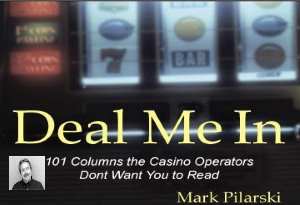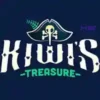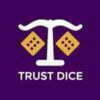On my last six trips to Gulfport, MS, I’ve come home a winner playing slots. I believe it’s beyond luck now. I just have this certain feeling when to play a particular machine. I’ve been so successful lately that I feel I should go to dollar machines, or higher, versus the quarter ones and win even more money. Am I on to something here? Jon S.
Jon, may I share two stories with you? One deals with arrogance and the other with the incessant craving for more.
An old Polish folk tale tells of a fisherman who lives in a hovel by the sea and catches a magical fish that grants his humble desire for a cabin and enough to eat. After a week, he is no longer satisfied and demands larger quarters, and once again the fish grants him his wish. The sequence of catch and release repeats itself for six weeks until the fisherman lives in a castle, then demands the finest palace. For his insolence, the fish casts him back to the hovel by the sea.
For the second story, let’s stick with the water theme. “God himself cannot sink this ship.” Those were the quotes throughout the newspapers prior to the Titanic making her first passage across the big pond. She was appropriately named, as Titans always dared to challenge the gods, and for their arrogance they were cast down into hell.
At best, Jon, by challenging the gaming gods absorbed in your spirit of rapacity, you’re on the Atlantic ocean in a one-man lifeboat with a slow leak. And the sound I hear? Pssssssss.
I very much enjoy the historical questions you answer. Where do you find the answers to the most obscure questions? Also, how about trying mine? Tell me about the history of keno in this country. Sylvia R.
Around 200 B.C. in China, Cheung Leung introduced the lottery, the forerunner to modern day keno, to fund his army. Because of its overwhelming success, it continued, and additional proceeds from future lotteries were used to fund major projects such as the Great Wall.
In the 1860s when the building of the railroads in the United States offered promise to Chinese immigrants, they brought a game, the Chinese lottery, to America. As the game’s popularity grew, it evolved from a 120-grid ticket used in the railroad camps to an 80-number ticket called Keno.
You wanted to know my sources, Sylvia. This sweetmeat of enlightenment came from the placemats at the coffee shop at Karl’s Silver Nugget in Sparks, Nevada. Found above the placemats were cheap, terrific breakfast specials-and for some readers, that’s more valuable information than the Keno answer.
Don’t you think that when you write about long-shot slot machines like Megabucks, you induce play rather than helping a player refrain from playing? Stanley F.
The goal of this column is not to shill for the casinos but to inform players on the exact cost of an evening’s entertainment. I am of the opinion, Stanley, that players should know exactly what their chances are of hitting the big jackpots. Some casinos do post the paybacks on their machines, but not the true odds of hitting a jackpot. If they posted the odds, no one in his right mind would play those machines. You will note, that I continually write that your chances are slim to none for a life of opulence when playing Megabucks.
Unfortunately, no amount of education from me, nor the casino disclosing the enormous odds right on a machine, will curb a player’s appetite for hitting it rich. Every slot participant believes he or she will be the exception to the rule; she will beat the celestial gods; it is he who will come home a victorious contestant against ABC casino.
And every so often, Stanley, to induce a Pavlov saliva reaction, you will read in the paper that Mabel, from Ames, Iowa, hit it big, real big.




















